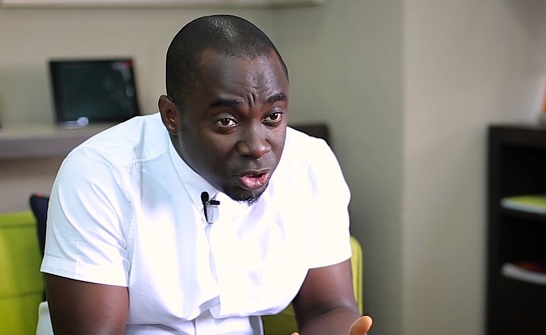
Founder of defunct Beige Bank fails to stop suit
The Founder and Chief Executive Officer (CEO) of the defunct Beige Bank, Michael Nyinaku, has failed to stop a civil suit instituted against him and 12 other subsidiary companies of the Beige Group by the receiver of the bank, Nii Amanor Dodoo ,suing in the name of bank, over the collapse of the bank.
Nyinaku’s application which urged the Commercial Division of the Accra High Court to strike out the suit against him has been dismissed by the court.
In a ruling, the court, presided over by Justice Akua Sarpomaa Amoah, held that Nyinaku failed to convince the court with his application.
“None of the grounds canvassed in support of the present application has found favour with this court. T
he applicant is blowing hot and cold probably in an attempt to avoid the merits of the suit. Such a conduct, if I am not mistaken, is unacceptable and stands to be deprecated,” the presiding judge held.
After throwing out the application, Justice Amoah ordered Nyinaku to file his defence in the substantive suit within 10 days and awarded cost of GH¢3,000 against him.
Substantive suit
In July, last year, the Beige Bank (under the receivership of Nii Amanor Dodoo) , dragged Nyinaku and 12 subsidiaries of the Beige Group to court for the alleged roles they played leading to the collapse of the bank.
Nii Dodoo is seeking to use the court action to retrieve more than GH¢1 billion from Nyinaku and his companies.
The writ, filed at the Accra High Court, accuses the former CEO of breaching his duties as a director of the bank and engaging in unlawful activities which led to massive losses at the Beige Bank.
According to the writ, Nyinaku allegedly supervised and unlawfully instructed the payment of hundreds of millions of Ghana cedis to his cronies and subsidiary companies without due diligence.
Apart from the recovery of various sums of money, the receiver also wants to use the suit to take custody of over 10 landed properties and about 165 vehicles and equipment which he averred were acquired with funds from the defunct bank.
The properties included a residential building at Trasacco, East Legon, and other properties scattered across Accra and Kumasi in the Ashanti Region.
Nyinaku’s application
Even before hearing would commence, in August, last year, lawyers for Nyinaku filed an application to terminate the entire suit on the basis that certain statutory conditions were not followed before the suit was initiated.
The legal team of Nyinaku led Mr Thaddeus Sory, argued that the “plaintiff” in the suit - The Beige Bank (under the receivership of Nii Amanor Dodoo) had no capacity to initiate the action.
It was their contention that under the Companies Act, 2019 (Act 992), a receiver of a bank only deals with the properties of the bank, but under Section 127 (1) of the Banks and Specialized Deposit-Taking Institutions Act, 2016 (Act 930), a receiver of a defunct bank was the sole legal representative of the bank.
They argued that since Act 930 dealt with the banking institution, its enactment must prevail and, therefore, the receiver was indeed the sole legal representative of the bank.
In view of this, it was their argument that as the sole legal representative of the bank, Nii Dodoo should have initiated the suit in his name but not in the name of The Beige Bank (under the receivership of Nii Amanor Dodoo).
On that basis, they further contended that a previous decision by the High Court in the uniBank’s case, another defunct bank, in which the court held that the receiver cannot sue in his name but rather in the name of the bank was incorrect.
Response
In response, lawyer for the Beige Bank (under the receivership of Nii Amanor Dodoo), Mr Ace Ankomah, disagreed with Nyinaku’s lawyers and submitted that nothing under Act 930 took away the powers of a company in receivership.
He argued that a receiver only assumes the rights and powers of the shareholders of the company and not the rights and powers of the company, including the right to initiate legal action.
Counsel, therefore, argued that the suit filed by a plaintiff named The Beige Bank Limited (under the receivership of Nii Amanor Dodoo) was not in contravention of any statutory provision.
Ruling
In her ruling, Justice Amoah upheld the arguments of Mr Ankomah and subsequently dismissed Nyinaku’s application.
“Upon a careful reading of Acts 992 and 930 together and separately, I am unable to find any provision (s) that takes away the right or power of a company under receivership to institute an action in its name.
What the applicant seems to have overlooked is that the respondent company remains a going concern capable of suing and being sued in its own right
Revocation of licence
Apart from the civil action against Nyinaku, the Attorney-General has also initiated criminal action against him, accusing him of stealing more than GH¢340 million.
In August 2018, the Bank of Ghana (BoG) revoked the licences of Beige Bank Limited and four other indigenous banks and put them together as the Consolidated Bank Ghana Limited.
The four other banks were uniBank Ghana Limited, Royal Bank Limited, Sovereign Bank Limited and Construction Bank Limited.
The BoG explained that the Beige Bank “persistently breached the cash reserve requirement (CRR) of 10 per cent (CRR as of 23 July, 2018 was 1.97%) since the beginning of January 2018”.
It further said the quality of the bank’s loan portfolio had seriously deteriorated, resulting in a non-performing loans (NPL) ratio of 72.80 per cent.
“The bank’s Capital Adequacy Ratio (CAR) was assessed to be negative 17.18 per cent, as against the regulatory minimum of 10 per cent, thereby recording a capital deficit of GH¢159,162,557.64 and rendering the bank insolvent,” it added.
Writer’s email:
